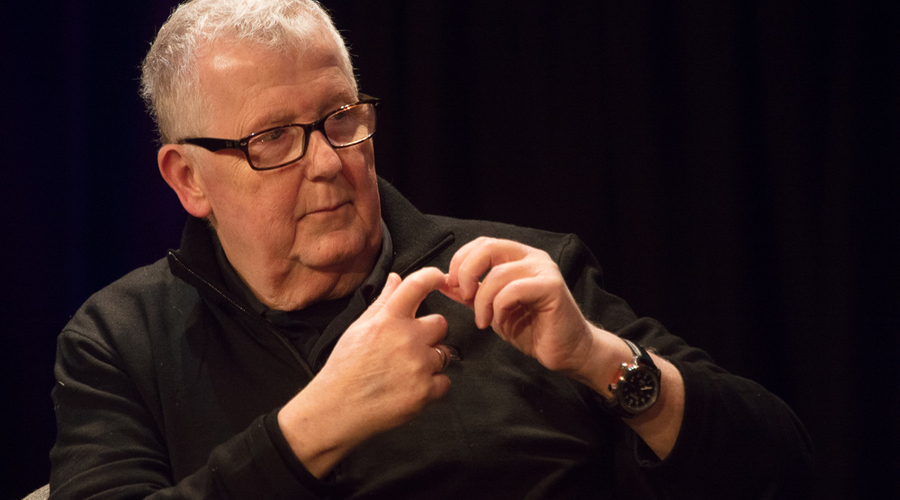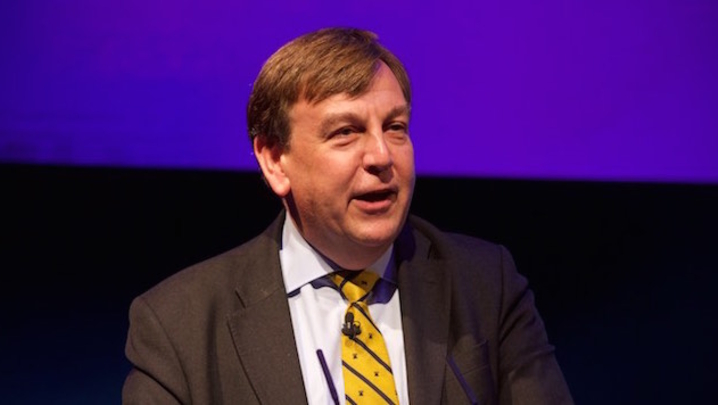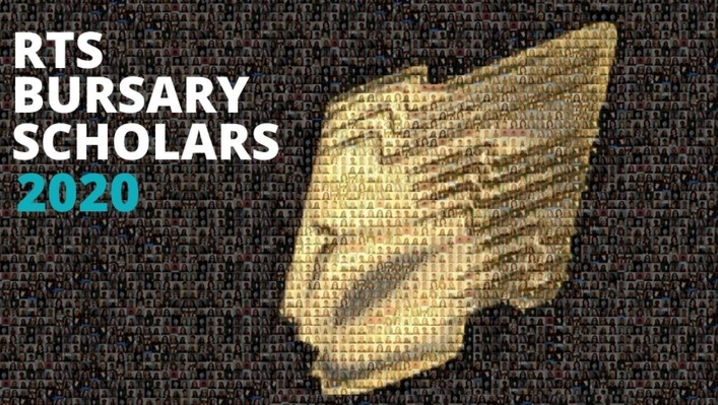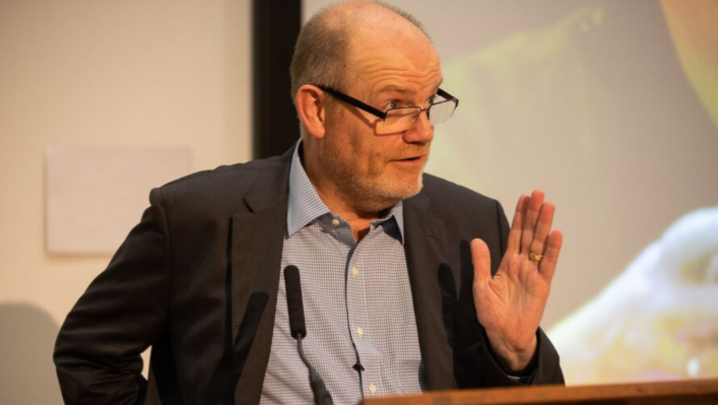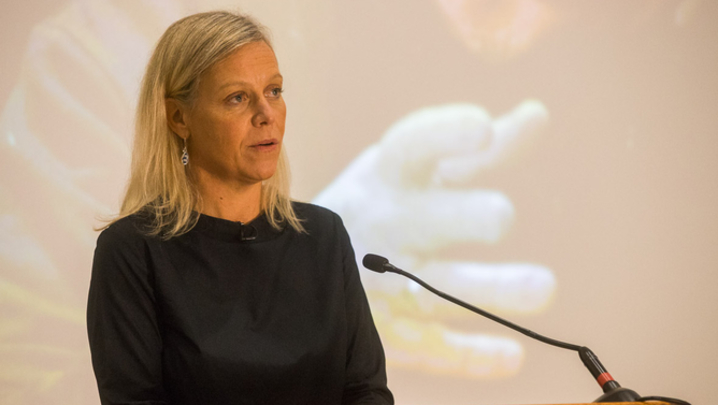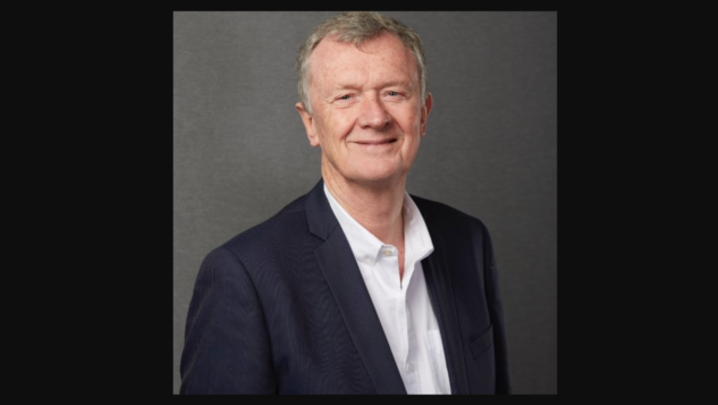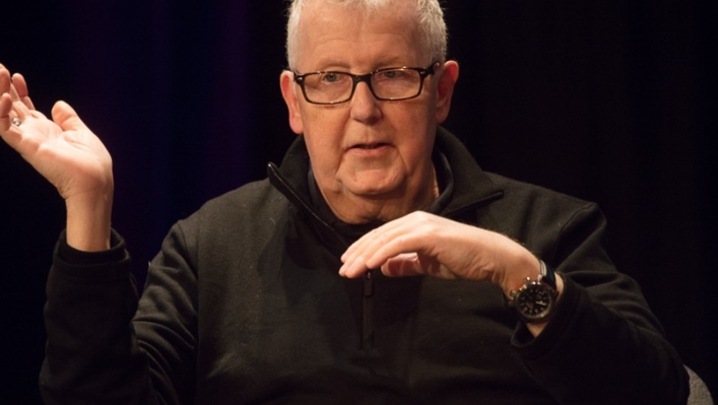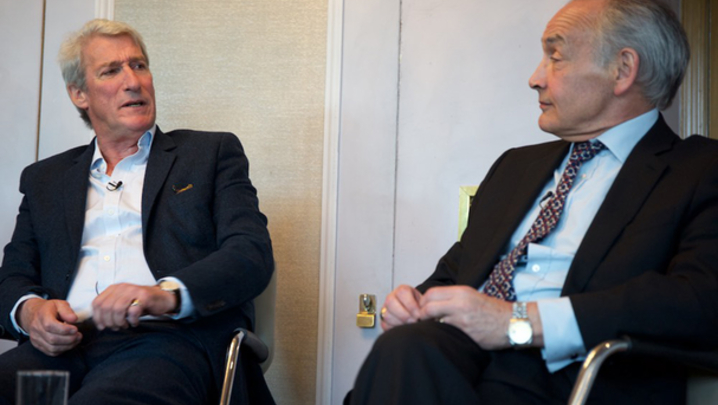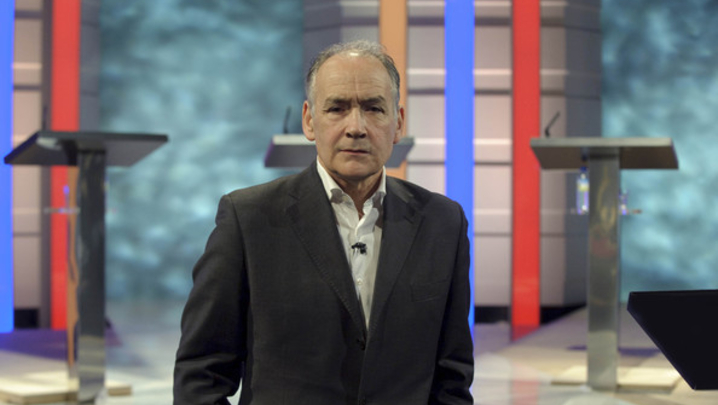Steve Hewlett, who has died aged 58, was in many ways the journalists’ journalist.
Large and crumpled in appearance, looking askance at the world through badly treated glasses, Steve resembled a character from the pages of Michael Frayn. It was no surprise to learn than Steve was a rugby player.
His distinctive Midlands’ tones were invariably part of the background noise to any media event worth attending.
At Cambridge or Edinburgh, Steve’s presence was de rigour – whether talking, beer in hand, until past midnight in the bar or up on stage interviewing, say, Elisabeth Murdoch or David Abraham.
The public knew him as the presenter of Radio 4’s Media Show and latterly for describing in moving detail the progress of his own cancer that finally killed him on February 20.
On some days when a big media story was breaking it seemed as if there were three, four or even six or seven Steve Hewletts.
He’d be on Today at breakfast time and there again as a pundit on the lunchtime news.
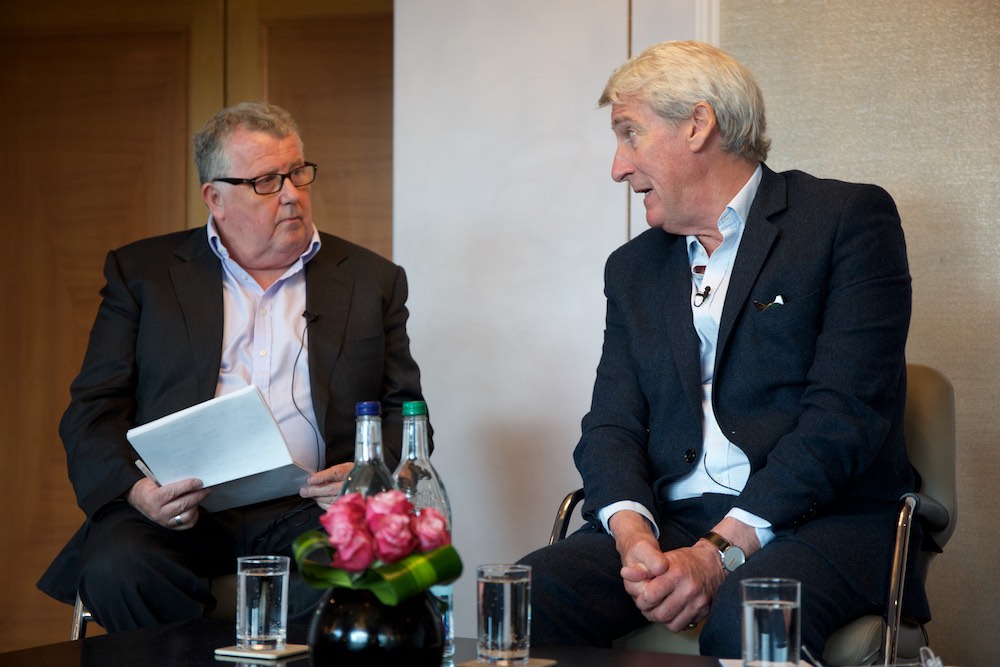
(Credit: Paul Hampartsoumian)
As the day’s news cycle drew to a close Steve would still be explaining the importance of the latest twist in the phone hacking saga, or a row over BBC executive pay to Newsnight.
Somehow the hugely energetic and intellectually forensic Steve would find the time to return calls made to him by various media correspondents.
He would not short-change these reporters by giving brief, run-of-the-mill answers to their queries.
Steve’s weekly columns for The Guardian were a must-read and he was a welcome contributor to Television.
It is hard to imagine the UK’s media world without Steve’s enquiring mind to make sense of it.
He would look deep under the surface of things and not fall victim to the hack’s lazy trick of falling back on platitudes.
At RTS events Steve was a hugely welcome presence. His interviewing gifts were sublime although his questions could sometimes be longer than the eventual answers.
Steve was brought up by adopted parents, Lawrence and Vera Hewlett. He attended grammar school in Solihull, in the West Midlands.
He attended Manchester University where as a student activist he helped organise a rent strike.
As an aspiring journalist he sold stories to the BBC, but when Nationwide’s editor, Roger Bolton, offered him a job Steve caught the eye of the corporation’s infamous Brigadier Ronnie Stonham, the Beeb’s in-house spook.
Bolton somehow over rode the MI5 man’s objections and Steve’s career was up and running.
Steve was part of the team that made the radical Channel 4 current affairs shows, The Friday Alternative and Diverse Reports, both accused of left wing bias.
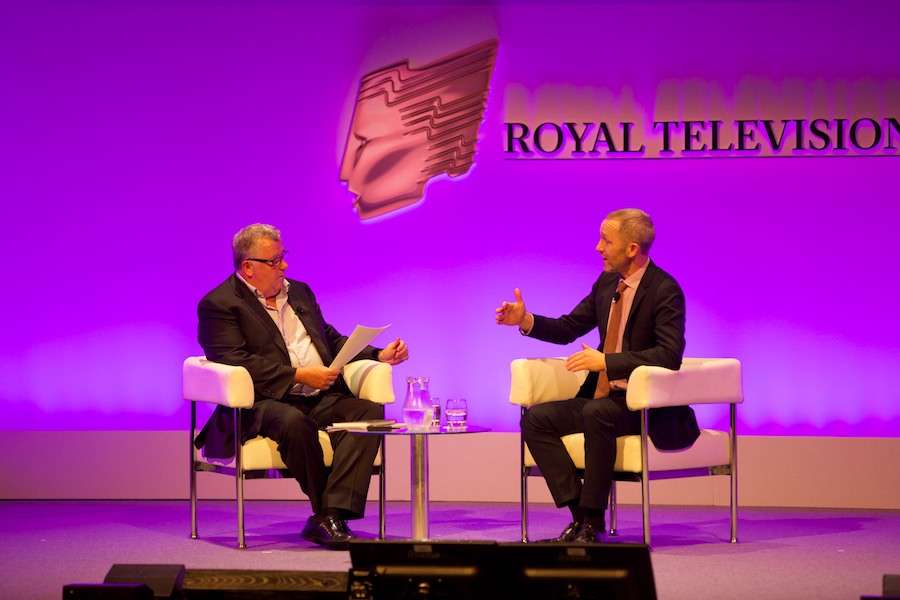
(Credit: Paul Hampartsoumian)
In 1987 he returned to the BBC making hard-hitting investigative programmes for Brass Tacks and famously Panorama, where he edited the sensational interview with Princess Diana.
The show was watched by an astonishing 23 million people and precipitated a clash between the then BBC chairman, Marmaduke Hussey, and director-general John Birt.
Hussey’s wife, Susan, was a lady-in-waiting to the Queen, but Birt kept the chairman in the dark about the programme until it became public knowledge.
Steve loved upsetting apple carts. He was in line to become the next controller of BBC One but was beaten to the job by Peter Salmon.
Instead Steve was recruited as a commissioning editor at Channel 4 before joining Carlton TV as managing director of productions. He was hired to bring some editorial clout to the company following controversy over a faked documentary.
The corporate Carlton life was not totally to Steve's taste. Following Granda's takeover of the company, in 2004 he was made redundant.
He then proceeded to re-invent himself as Steve Hewlett portfolio worker. As well as his BBC duties, he made programmes for two companies he'd helped set up, Big Pictures and Genie Pictures.
His BBC Two documentary, Rupert Murdoch – Battle With Britain, typically avoided being binary.
Steve is survived by his wife, Rachel Crellin, whom he married weeks before his death, and his three sons, Freddie, Billy and Bertie, by his former partner Karole Lange.
Steve Hewlett, journalist and broadcaster, born August 8 1958, died February 20, 2017

